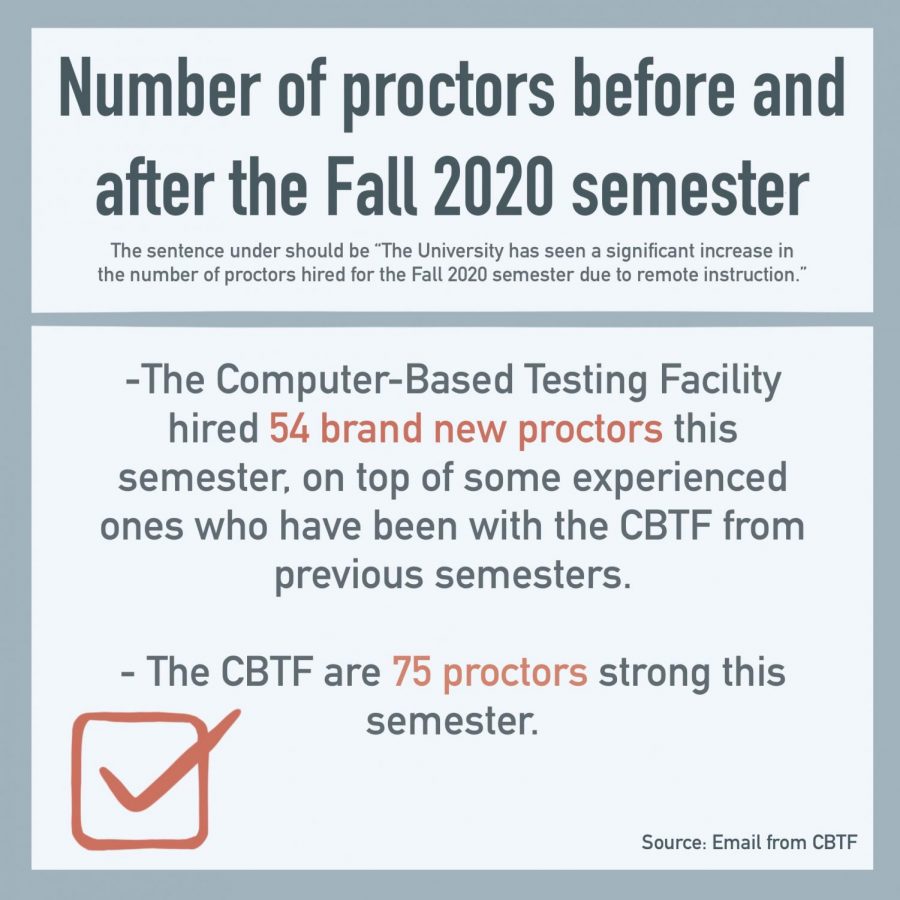University proctoring facility reaches hiring goal; Proctorio draws continued resistance
Oct 26, 2020
The increase in the number of online classes led to the demand for online proctoring, which left the University’s Computer-Based Testing Facility searching for staff.
Instead of administering in-person exams at the facility like previous semesters, proctors virtually monitor students during their online examinations.
“We hired 54 brand new proctors this semester, on top of some experienced ones who have been with the CBTF from previous semesters,” CBTF Manager Carleen Sacris said. “We are 75 proctors strong this semester.”
Earlier this year, CBTF was aiming for “about 80” proctors to meet online testing demands.
Meanwhile, many students are calling for the University to end ties to Proctorio, an online proctoring service, over privacy concerns. A petition titled “Stop Proctoring Exams Through Proctorio at UIUC” has over 900 signatures against this issue. The Graduate Employees’ Organization has also expressed their concern regarding the same.
Get The Daily Illini in your inbox!
Many students have reported complaints against the software since it requires access to the webcam and microphone that the student uses during exams, as well as downloads and privacy settings. The service monitors movements that students make on camera.
While many courses may be looking into other alternatives for proctoring, this may not change much for the CBTF as of now. The CBTF finalizes its schedule a week before the semester begins and does not add any courses in between, so as to plan ahead of time and anticipate the demand for proctoring. This is also affected by capacity and time constraints.
“The issue with Proctorio doesn’t really affect us, operationally,” Sacris said. “We have had some inquiries from courses outside of Engineering based on recommendations from their students. But since we don’t add courses in the middle of the semester, we try to help out in other ways.”
This includes sharing materials with other courses interested in online proctoring best practices, conducting workshops for professors and TAs as well as offering consultation to departments who may be interested in proctoring their own exams.
To keep up with this demand, some courses have enlisted the help of TAs for final exams while others have shifted to open-note and open-book exams, which will be based on concepts more than memorization. However, before they make a switch to using a different method or platform, course instructors will have to be mindful of their courses and their requirements.
“I think it’s important to note that while the CBTF is a good resource, we are not always the best solution for every course,” Sacris said. “For example, if course staff have a very specific way of handling their exams, which do not align with CBTF systems or protocols, then it may be more prudent not to use the CBTF.”
This could also include holding longer examinations which may not be aligned with the current CBTF system.






